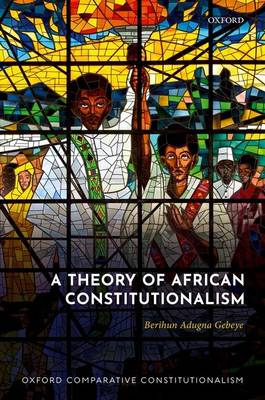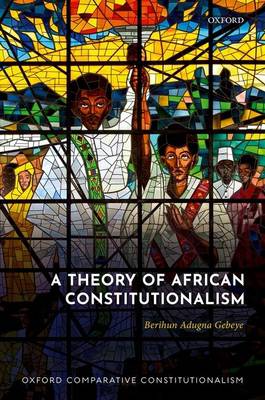
- Afhalen na 1 uur in een winkel met voorraad
- Gratis thuislevering in België vanaf € 30
- Ruim aanbod met 7 miljoen producten
- Afhalen na 1 uur in een winkel met voorraad
- Gratis thuislevering in België vanaf € 30
- Ruim aanbod met 7 miljoen producten
Zoeken
Omschrijving
A Theory of African Constitutionalism asks and seeks to answer why we need a new theoretical framework for African constitutionalism and how this could offer us better theoretical and practical tools with which to understand, improve, and assess African constitutionalism on its own terms. By locating constitutional studies in Africa within the experiences, interactions, and contestations of power and governance beginning in precolonial times, the book presents the development and transformation of African constitutional systems across time and place, along with the attendant constitutional designs and practices ranging from the nature and operation of the African state to its vertical and horizontal government structures, to its constitutional rights regime. This title offers both a theoretically and comparatively rich, historically and contextually informed, and temporally and spatially extensive account of the nature, travails, and incremental successes of African constitutionalism with detailed case studies from Nigeria, Ethiopia, and South Africa. A Theory of African Constitutionalism provides scholars, policymakers, governments, and constitution builders in Africa and beyond with new insights for reimagining the purpose, substance, and scope of constitutions and constitutionalism.
Specificaties
Betrokkenen
- Auteur(s):
- Uitgeverij:
Inhoud
- Aantal bladzijden:
- 272
- Taal:
- Engels
- Reeks:
Eigenschappen
- Productcode (EAN):
- 9780192893925
- Verschijningsdatum:
- 8/09/2021
- Uitvoering:
- Hardcover
- Formaat:
- Genaaid
- Afmetingen:
- 155 mm x 229 mm
- Gewicht:
- 566 g

Alleen bij Standaard Boekhandel
+ 386 punten op je klantenkaart van Standaard Boekhandel
Beoordelingen
We publiceren alleen reviews die voldoen aan de voorwaarden voor reviews. Bekijk onze voorwaarden voor reviews.











